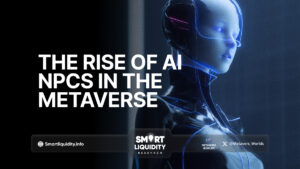How Blockchain Enables Decentralization in the Metaverse


The concept of the metaverse, an expansive digital universe where users interact in a shared virtual space, is rapidly evolving. Central to its development is the technology of blockchain, which plays a crucial role in ensuring decentralization.
Firstly, blockchain technology provides a decentralized ledger that records all transactions across a network of computers. This eliminates the need for a central authority, distributing control among all users. Consequently, each participant has an equal say in the metaverse’s operations, enhancing fairness and transparency.
Moreover, blockchain’s inherent security features are fundamental. By employing cryptographic techniques, it ensures that transactions and data within the metaverse are secure and tamper-proof. This not only protects users’ digital assets but also builds trust in the virtual environment.
Additionally, blockchain facilitates true ownership of digital assets. Through non-fungible tokens (NFTs), users can own and trade unique virtual items. These tokens are verified on the blockchain, providing irrefutable proof of ownership and preventing fraud. Thus, users have genuine control over their assets, which is essential in a decentralized metaverse.
Furthermore, decentralized applications (dApps) built on blockchain technology are instrumental. Unlike traditional applications, dApps operate on a peer-to-peer network, reducing reliance on central servers. This decentralization of application hosting promotes resilience and reduces the risk of single points of failure.
In summary, blockchain’s role in the metaverse is pivotal. It decentralizes control, secures transactions, and ensures ownership. As the metaverse continues to grow, blockchain will likely remain a cornerstone, fostering an open and equitable virtual world. Through these mechanisms, blockchain technology enhances the metaverse’s potential, making it a dynamic and user-centric space.




